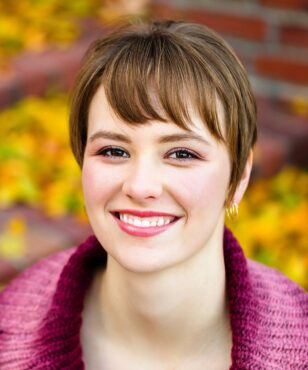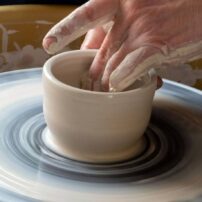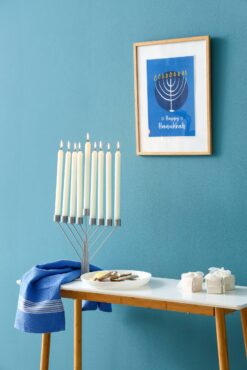 When people think of the holiday season, Christmas or New Year may come to mind. Many overlook the glorious holiday of Hanukkah — but this holiday is “not a substitute for Christmas,” says a local resident who has researched Hanukkah.
When people think of the holiday season, Christmas or New Year may come to mind. Many overlook the glorious holiday of Hanukkah — but this holiday is “not a substitute for Christmas,” says a local resident who has researched Hanukkah.
“It’s a joyous celebration … coming together, eating good food and sharing tradition,” she says, adding that one of those traditions is the eight days of Hanukkah.
Fred Rabinovitz, who ministers at Heritage Foursquare in Port Orchard, says the symbolism of eight days goes back to the time when “the Syrian Greeks ruled over the Holy Land and desecrated the Holy Temple in Jerusalem as part of an effort to force the people of Israel to accept Greek culture and beliefs.”
“Against all odds, a small band of poorly armed Jews defeated one of the mightiest armies on Earth, drove the Greeks from the land and reclaimed the Holy Temple,” he says. “When they sought to light the temple’s menorah — the sacred seven-branched candelabrum — they found only a single cruse of olive oil that had escaped contamination by the Greeks. They lit the menorah and miraculously, the one-day supply of oil lasted for eight days.”

Certain Hanukkah foods, such as oil-fried potato pancakes called latkes and the jam-filled sufganiyah (donut), are also related to the symbolism of those eight days, according to the Jewish researcher. She adds that besides menorahs and food, Hanukkah celebrators embrace traditions such as gelt and dreidels. Gelt is money, traditionally given to children as a way of teaching them the importance of sharing with others.
“Nowadays, you’ll find [gelt] as chocolate coins wrapped in decorative foil that might have a menorah on them,” she says. “The idea of the gelt is not to compete with Christmas. The idea of gelt is a teaching tool … so that the child will give away a third of it. They will save a third of it and they will spend a third of it.”
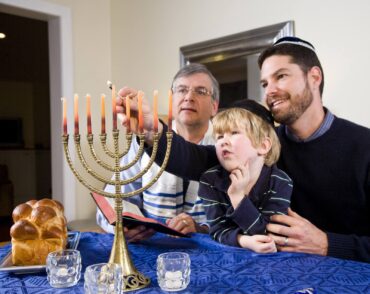
According to Rabinovitz, dreidel is a game that “reminds us of the tops the Jewish children played with to fool the Greek patrols as they secretly learned the Torah, which the Greeks had outlawed.”
“The dreidel has four sides and there’s a letter on each of those sides. Each one of those letters stands for a word: ‘nes gadol hayah sham,’ which means ‘a great miracle happened there.’ And when you spin the dreidel, you either do nothing, put one in, take half the pot or win the whole pot,” he says. “It’s a great game.”
Rabinovitz grew up in a traditional Jewish family who celebrated Hanukkah among other holidays. He says celebrating this holiday doesn’t take much. “It takes a menorah and some candles,” he says. “So, the first thing you do as a young Jewish man is you learn the prayers and then you light the candles, and it lasts for eight days. … It’s not one of the big festivals, but it is definitely one of the more observed festivals in today’s Jewish culture.”
Rabinovitz notes that Hanukkah is family oriented. “The Hebrew word ‘Hanukkah’ means dedication, hence it is also known as the Feast of Dedication,” he adds. “It is thus named because it celebrates the rededication of the Holy Temple after the victory of the Jews over their suppressors.”
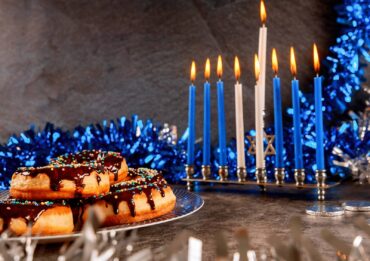 One of the well-known traditions, of course, is lighting a special menorah with nine candles. “There is one candle set apart, called the shammash or servant,” Rabinovitz explains. “This candle is the first lit and is used to light all the other candles. On the first day, only one candle is lit with the shammash, and one is added each night of the festival.”
One of the well-known traditions, of course, is lighting a special menorah with nine candles. “There is one candle set apart, called the shammash or servant,” Rabinovitz explains. “This candle is the first lit and is used to light all the other candles. On the first day, only one candle is lit with the shammash, and one is added each night of the festival.”
Rabinovitz adds that mourning and sadness are suspended during this time of celebration. “Hanukkah is a joyful time,” he says, “with lots of celebration and the giving of gifts.”



